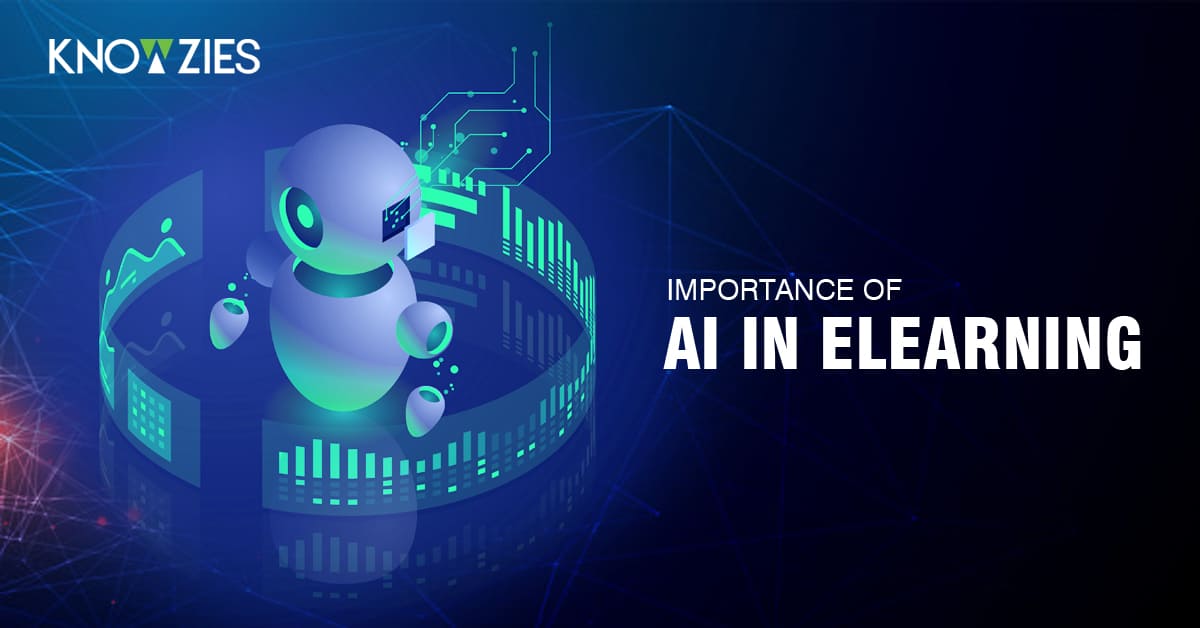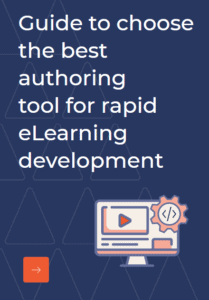Who hasn’t heard about Siri, Google Assistant (who answers to ‘OK Google’) and Alexa (and her laugh)? We are now living in a digitally enabled era, where voice commands can activate devices, run searches, assist in finding better options, give us suggestions, for all you know can turn into something we are entirely dependent on (remember ‘Her’?). Putting aside the Hollywood instances, there is lot of hype around Artificial Intelligence (AI) in the technology sphere.
Recently, DeepMind, which is involved in artificial intelligence research and its application for positive impact, has been the talk of the town. Why you ask? Well, DeepMind’s program AlphaStar, is the first Artificial Intelligence to defeat a top professional player on one of the most challenging Real-time Strategy (RTS) game StarCraft II. Woohoo! Way to go AI.
So, what does AI offer to eLearning (read a bit about it here) and how is it used (2 examples discussed here)? But, is AI really important in eLearning or is it just another fad that is being followed? Here are a few reasons why AI could really change the way eLearning is created, deployed and utilized, which makes AI important in eLearning in the near future.
Better Learning Strategies
Artificial intelligence in general stands for technologies that can learn and perform specific tasks. This includes running complex analysis, evaluations, finding patterns, making predictions based on the patterns etc. This very aspect is being used by companies like Amazon, Netflix etc. to push recommendations based on the consumer’s previous choices. A similar approach for delivering learning can work wonders in terms of creating personalized learning experiences and improved learning strategies that are specific to the learners.
Quick Analysis, Quicker Turnaround
It is AI’s ability to evaluate, learn, and adopt a dynamic strategy that makes it a great assistant in designing and development. In certain situations, requirements call for eLearning solutions that can be created and delivered quicker and time constrains overpower the design elements. In such cases deploying an AI-based tool for development could work with more efficiency than a normal authoring tool, it would be a more precise and innovative form of process automation. And in spite of the misconceptions, the human element in eLearning design and development would always be a requirement.
Intelligent Tutoring Systems
AI for content curation and condensation of information, creation of smart learning guides or identifying learning content appropriate for the learner’s learning requirements is one thing. There are currently smart tutoring systems that use data from individual learners to give them feedback, and train them one-on-one. A good example for this is an Intelligent Tutoring system known as "SHERLOCK" that is used to teach Airforce technicians to diagnose electrical system problems in aircrafts. There are avatar-based systems that are being explored too. While still at its nascent stage, it offers great promise in terms of improving the effectiveness of eLearning.
It’s a Virtual World and Virtual Agents are Here to Assist
When we hear about virtual agent the first thought that comes to mind is either a digital avatar or the voice of Alexa. While a virtual agent is just a computer program capable of interacting with humans, it is the AI component that makes the agent special. While chatbots may not be a good example, in terms of engaging interaction, Siri, Alexa and Cortana sure are. While it is greatly put to use in customer service and support, it holds promise for virtual training sessions too, with greater intuition, interaction and engagement.
AIaaS is Here
Yes, you read it right. AI tools are now available as a service. While this may not be so much of a news for organizations looking for eLearning vendors, it is a piece of information that may elate the developers and the in-house content development team. The spectrum of tools currently available is limited, it still gives the possibility of making AI available for all. For now, the AIaaS services are limited to adding “standard” AI tasks to the toolbox, image-based identifications, and some simple logical and decision-making tasks. The availability of cloud-based products makes those tools available anywhere. The providers include big names like Microsoft Azure and IBM Watson.
There are various assessment models that utilize the strength of AI to decide which questions to ask a learner based on the learner’s learning curve, previous responses and areas of learning or topics that require reinforcement. While there are still certain misconceptions about how machine learning and AI would create deficiency in jobs and replace humans, AI still offers great possibilities in many fields including eLearning. It is more about how it is put into use that determines what it can turn into.
Thinking about how to incorporate AI in the learning strategy? Get in touch for a consultation today.



